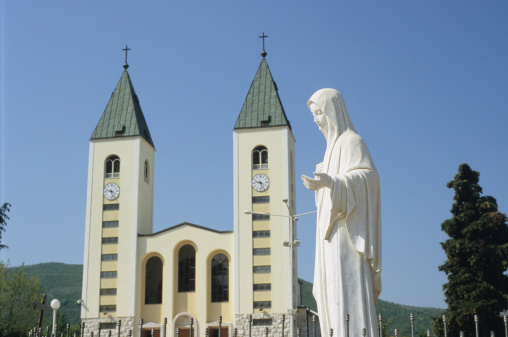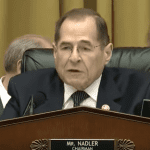Significantly, this was announced quietly on Sunday, the day before the Feast of Our Lady of Fatima.
Pope Francis has given the green light for Catholics to organize pilgrimages to Medjugorje, a site of alleged Marian apparitions, though the Church has not yet given a verdict on the apparitions’ authenticity.
The pope’s authorization of pilgrimages to the site is not to be understood as an “authentication” of the alleged apparitions, “which still require an examination by the Church,” papal spokesman Alessandro Gisotti said in a statement May 12.
He added that anyone leading pilgrimages to the site should avoid creating “confusion or ambiguity under the doctrinal aspect,” including priests who intend to celebrate Mass there.
The provision was made as an acknowledgment of the “abundant fruits of grace” that have come from Medjugorje and to promote those “good fruits.” It is also part of the “particular pastoral attention” of Pope Francis to the place, Gisotti said.
The announcement of the papal authorization was made May 12 by the Vatican’s apostolic visitor to the site, Archbishop Henryk Hoser, and Archbishop Luigi Pezzuto, apostolic nuncio to Bosnia and Herzegovina.
Hoser, retired archbishop of Warsaw-Prague, was appointed apostolic visitor to Medjugorje by Pope Francis in May 2018. His directive, which is of an undetermined length, is to oversee the pastoral needs at the site of the alleged Marian apparitions.
From an editorial on the Vatican’s media website:
In order to understand the reasons and the profound meaning of Pope Francis’ decision to authorize pilgrimages to Medjugorje, it is useful to re-read some passages of the apostolic exhortation Evangelii gaudium, the document that traces the course of his pontificate. In that text, the Pope recalled that “in popular piety one can grasp the way in which the faith received has incarnated itself in a culture and continues to be transmitted.” He also recalled, citing the words of the final document of the Conference of Latin American Bishops in Aparecida, that “walking together towards sanctuaries and participating in other manifestations of popular piety, bringing with one another children or inviting others, is in itself an act of evangelization.” “Let us not coerce or pretend to control this missionary force,” concluded the Pontiff.
It is a fact that millions of pilgrims in recent years have had a significant experience of faith on their way to Medjugorje: this is attested to by the long lines at confessionals and the evening Eucharistic adoration in the large parish church without a square metre free filled with kneeling faithful.
“I believe” that “in Medjugorje there is grace. There is no denying it. There are people who convert,” said the Pope in 2013 in dialogue with Father Alexandre Awi Mello, a Mariologist and now Secretary of the Department for the Laity, the Family and Life. In that interview, transformed into a book (It’s My Mother. Meetings with Mary, Città Nuova editions), Pope Francis certainly warned against the protagonism of the visionaries and the multiplication of messages and secrets, but without ever disregarding the positive fruits of the experience of pilgrimages. In the preface to that book, the Argentine theologian Carlos María Galli wrote: “For Francis the most important thing is the Marian faith of the “holy people faithful to God”, which teaches us to love Mary beyond theological reflection. As a son and member, like any other, of the People of God, Bergoglio – Francis – participates in the sensus fidei fidelium and identifies himself with the profound Marian piety of the Christian people”.
It is precisely for this reason that, by continuing to study the phenomenon of Medjugorje and without there being a pronouncement on the authenticity of the apparitions, the Pope intended to acknowledge those who face the hardships of the journey to go and pray in that place. For this reason he wanted his own permanent envoy, a bishop from the Holy See, who was in charge of the pastoral care of the pilgrims. And for this reason he now decides to go beyond what was declared more than twenty years ago by the Congregation for the Doctrine of the Faith, which allowed pilgrimages to Medjugorje but only “in a private way”. Now, instead, dioceses and parishes will be able to organize and guide those pilgrimages which are an expression of the Marian piety of the people of God.













